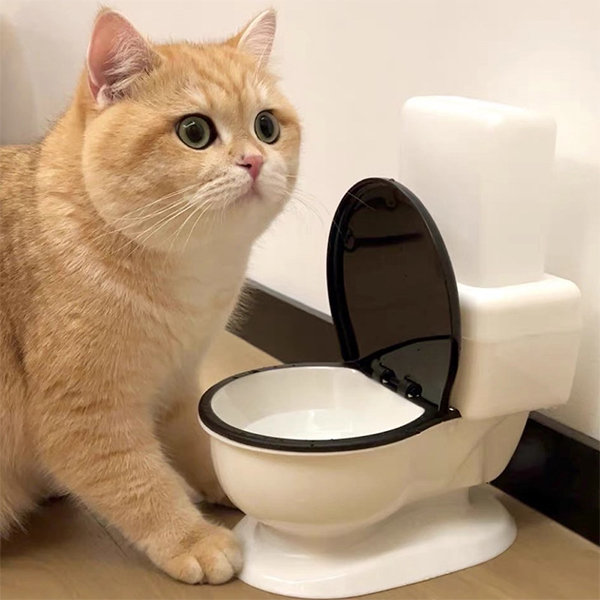Prevent Clogs and Damage: Never Flush Cat Poop Down Your Toilet - Professional Recommendations
Prevent Clogs and Damage: Never Flush Cat Poop Down Your Toilet - Professional Recommendations
Blog Article
Are you on the lookout for facts about Can You Flush Cat Poop Down The Toilet??

Intro
As pet cat proprietors, it's vital to be mindful of how we take care of our feline pals' waste. While it might seem practical to purge feline poop down the commode, this technique can have detrimental repercussions for both the environment and human wellness.
Alternatives to Flushing
Thankfully, there are more secure and extra accountable means to deal with feline poop. Think about the following alternatives:
1. Scoop and Dispose in Trash
The most typical method of taking care of pet cat poop is to scoop it right into an eco-friendly bag and throw it in the garbage. Be sure to utilize a devoted clutter scoop and take care of the waste quickly.
2. Usage Biodegradable Litter
Choose eco-friendly cat clutter made from products such as corn or wheat. These trashes are eco-friendly and can be safely disposed of in the trash.
3. Hide in the Yard
If you have a yard, take into consideration burying pet cat waste in a designated location away from vegetable gardens and water resources. Be sure to dig deep enough to avoid contamination of groundwater.
4. Mount a Pet Waste Disposal System
Buy an animal garbage disposal system especially made for cat waste. These systems use enzymes to break down the waste, minimizing smell and environmental impact.
Health and wellness Risks
Along with ecological concerns, flushing feline waste can additionally posture health and wellness risks to people. Feline feces may consist of Toxoplasma gondii, a parasite that can create toxoplasmosis-- a potentially extreme health problem, particularly for expecting women and people with weakened body immune systems.
Ecological Impact
Purging cat poop introduces damaging virus and bloodsuckers right into the water supply, positioning a significant risk to aquatic environments. These impurities can adversely affect aquatic life and concession water top quality.
Conclusion
Liable pet ownership expands beyond providing food and shelter-- it likewise entails correct waste management. By refraining from flushing pet cat poop down the toilet and going with different disposal methods, we can lessen our ecological impact and secure human health.
Why Can’t I Flush Cat Poop?
It Spreads a Parasite
Cats are frequently infected with a parasite called toxoplasma gondii. The parasite causes an infection called toxoplasmosis. It is usually harmless to cats. The parasite only uses cat poop as a host for its eggs. Otherwise, the cat’s immune system usually keeps the infection at low enough levels to maintain its own health. But it does not stop the develop of eggs. These eggs are tiny and surprisingly tough. They may survive for a year before they begin to grow. But that’s the problem.
Our wastewater system is not designed to deal with toxoplasmosis eggs. Instead, most eggs will flush from your toilet into sewers and wastewater management plants. After the sewage is treated for many other harmful things in it, it is typically released into local rivers, lakes, or oceans. Here, the toxoplasmosis eggs can find new hosts, including starfish, crabs, otters, and many other wildlife. For many, this is a significant risk to their health. Toxoplasmosis can also end up infecting water sources that are important for agriculture, which means our deer, pigs, and sheep can get infected too.
Is There Risk to Humans?
There can be a risk to human life from flushing cat poop down the toilet. If you do so, the parasites from your cat’s poop can end up in shellfish, game animals, or livestock. If this meat is then served raw or undercooked, the people who eat it can get sick.
In fact, according to the CDC, 40 million people in the United States are infected with toxoplasma gondii. They get it from exposure to infected seafood, or from some kind of cat poop contamination, like drinking from a stream that is contaminated or touching anything that has come into contact with cat poop. That includes just cleaning a cat litter box.
Most people who get infected with these parasites will not develop any symptoms. However, for pregnant women or for those with compromised immune systems, the parasite can cause severe health problems.
How to Handle Cat Poop
The best way to handle cat poop is actually to clean the box more often. The eggs that the parasite sheds will not become active until one to five days after the cat poops. That means that if you clean daily, you’re much less likely to come into direct contact with infectious eggs.
That said, always dispose of cat poop in the garbage and not down the toilet. Wash your hands before and after you clean the litter box, and bring the bag of poop right outside to your garbage bins.
https://trenchlesssolutionsusa.com/why-cant-i-flush-cat-poop/

We had been introduced to that write-up on Don’t flush cat feces down the toilet from a good friend on another web blog. Sharing is nice. You just don't know, you may be helping someone out. Thanks a lot for your time. Visit again soon.
Schedule Services Report this page